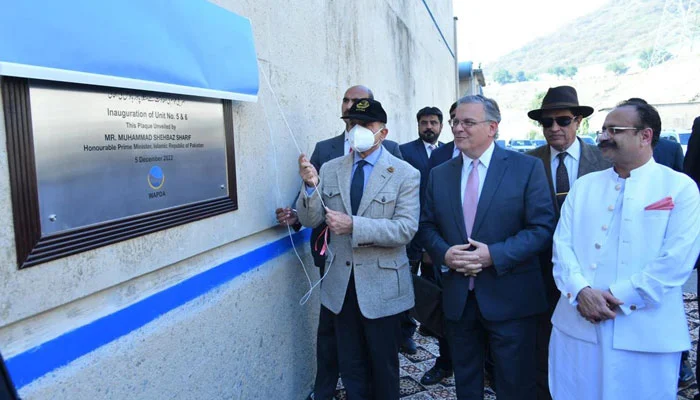Business
PM Shehbaz unveils Mangla dam’s refurbishment electricity project
-

 Entertainment2 days ago
Entertainment2 days agoReham Khan’s counsel to Hania Amir between marriage versus career
-

 Latest News2 days ago
Latest News2 days agoThe government and the military are successfully combating drug abuse through a nationwide anti-drug operation.
-

 Latest News2 days ago
Latest News2 days agoAt a ceremony held at Mirpur, the Prime Minister of Jammu and Kashmir stated, “We will not hesitate to make any sacrifice for peace in the region.”
-

 Latest News2 days ago
Latest News2 days agoThe 26th Amendment to the Constitution: The Amendment That Completes the Charter of Democracy: Bilawal
-

 Latest News2 days ago
Latest News2 days agoIn the border region, a Lahore police officer was detained for allegedly using drones to smuggle drugs.
-

 Entertainment2 days ago
Entertainment2 days agoThe Punjab government initiates the ‘Dhee Rani’ initiative for underprivileged couples.
-

 Latest News2 days ago
Latest News2 days agoJudicial Appointments in the Supreme Court Will Be Made Transparent: Law Minister
-

 Business23 hours ago
Business23 hours agoChina Contributes 43 New Foreign Firms to the 6% Growth in SECP Registrations























